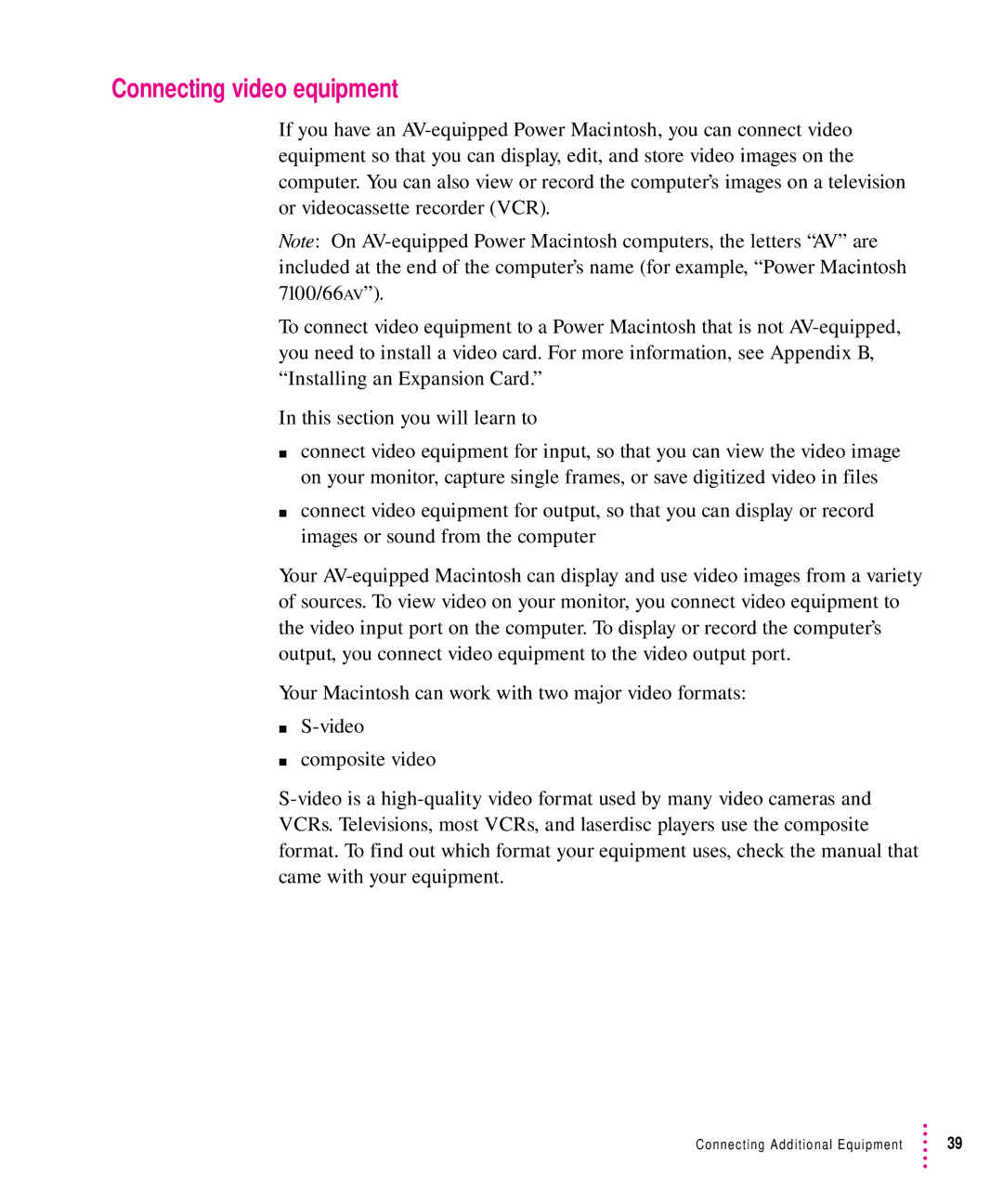Connecting video equipment
If you have an AV-equipped Power Macintosh, you can connect video equipment so that you can display, edit, and store video images on the computer. You can also view or record the computer’s images on a television or videocassette recorder (VCR).
Note: On AV-equipped Power Macintosh computers, the letters “AV” are included at the end of the computer’s name (for example, “Power Macintosh 7100/66AV”).
To connect video equipment to a Power Macintosh that is not AV-equipped, you need to install a video card. For more information, see Appendix B, “Installing an Expansion Card.”
In this section you will learn to
mconnect video equipment for input, so that you can view the video image on your monitor, capture single frames, or save digitized video in files
mconnect video equipment for output, so that you can display or record images or sound from the computer
Your AV-equipped Macintosh can display and use video images from a variety of sources. To view video on your monitor, you connect video equipment to the video input port on the computer. To display or record the computer’s output, you connect video equipment to the video output port.
Your Macintosh can work with two major video formats:
mS-video
mcomposite video
S-video is a high-quality video format used by many video cameras and VCRs. Televisions, most VCRs, and laserdisc players use the composite format. To find out which format your equipment uses, check the manual that came with your equipment.
